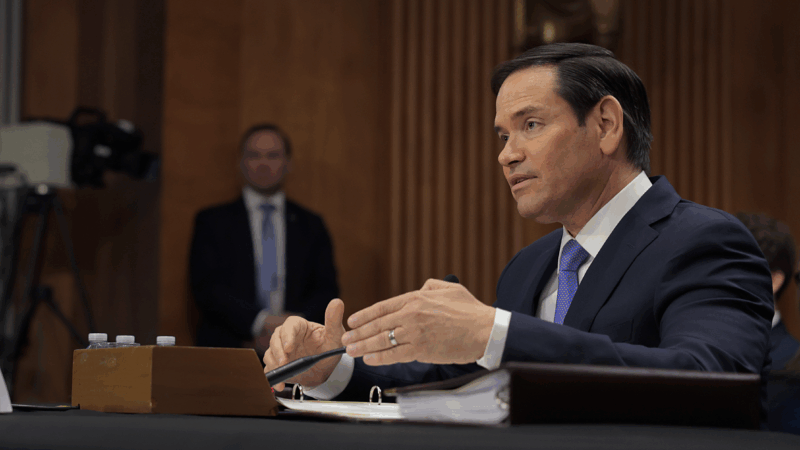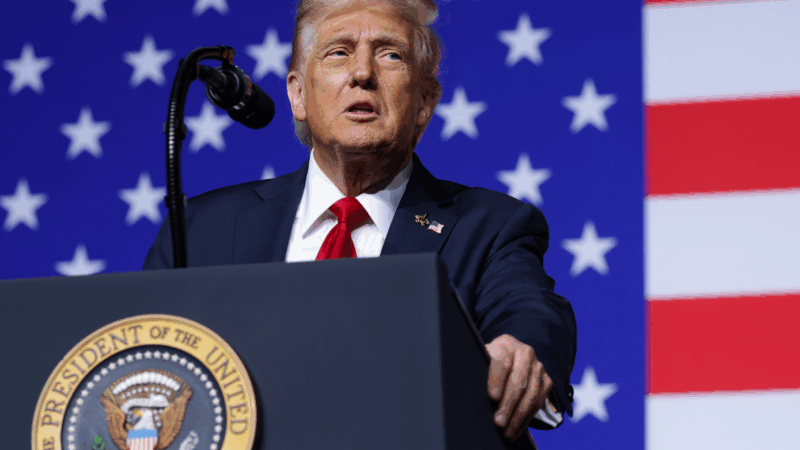Marco Rubio defends foreign affairs cuts and Trump’s Russia talks in Senate hearing
Secretary of State Marco Rubio is defending major cuts in the foreign affairs budget as he testifies on Tuesday before the Senate committee where he used to be a member.
“America is back,” he said in his statement to the Senate Foreign Relations Committee. But the committee’s ranking Democrat warns that budget cuts, and the dismantling of the U.S. Agency for International Development (USAID), mean the United States is ceding ground to China.
“As Elon Musk took a chainsaw to USAID and you proposed cutting 83% of foreign programs, China has proposed increasing its diplomatic budget by 8.4%,” New Hampshire Sen. Jeanne Shaheen said in prepared remarks. “As we move to reduce our diplomatic workforce and discuss closing U.S. embassies, China has more diplomatic missions than any other nation on Earth.”
Since Rubio’s confirmation hearing in January, when he appeared before his colleagues as a senator, the Trump administration has dismantled USAID. Now, Rubio is defending a $28.5 billion foreign affairs budget, about half of what it has been in recent years. He’s reorganizing and downsizing the State Department and considering closing some foreign missions.
Shaheen also pressed Rubio on the administration’s efforts to negotiate an end to Russia’s war in Ukraine. President Trump’s phone call with Russian President Vladimir Putin on Monday failed to produce an immediate ceasefire as Ukraine and its allies had hoped, with Putin instead proposing further talks.
“What Vladimir Putin is doing now is playing for time, and he’s playing the president like a fiddle,” Shaheen said.
Rubio rejected that, saying Trump is trying to end a war that no one can win. “Russia wants what they do not currently have and are not entitled to, and Ukraine wants what they cannot regain militarily. And that’s been the crux of the challenge,” Rubio said.
Republicans on the Senate Foreign Relations Committee have backed the changes Rubio is making. Republican Chairman Jim Risch of Idaho, in a previous hearing last month, said he has been “crying out” for reforms at USAID, which Risch hopes “does not survive.” He supports the idea of folding what remains of it into the State Department.
Hawaii Democratic Sen. Brian Schatz has said the reforms could have been done in a more thoughtful, bipartisan way.
Rubio is “someone who, up until four months ago, was an internationalist, someone who believed in America flexing its powers in all manners, but especially through foreign assistance. And yet, he is now responsible for the evisceration of the whole enterprise,” Schatz told an audience at the Council on Foreign Relations in New York last week. Schatz called on the prior version of Rubio, whom he approved for secretary of state, to “reemerge, reassert himself and save the enterprise.”
U.S. life expectancy is going up. Think how many more news quizzes you can do!
When the news gets too heavy, the quiz is forced to turn to pop culture questions — so there are a lot this week. Let's see how you do!
Kari Lake promotes Trump on Voice of America. Does that break the law?
Critics say U.S. Agency for Global Media's Kari Lake risks making Voice of America sound like a propaganda outlet in her remarks on the air praising President Trump.
Want to be part of a village? You might need to get out of your comfort zone
If you've always dreamed of having a village but feel disconnected from your community, try these five tips. Plus: We want to hear from you. Tell us how you cultivate community where you live.
Kalshi in court over 19 federal lawsuits. What’s the future of prediction markets?
Apps that let people wager on current events have experienced explosive growth in Trump's second term. But one of the leading markets is tied up in lawsuits that cloud the industry's future.
Trump thinks a weaker dollar is great for America. Is he right?
The president said this week that the value of the dollar is "great" despite a sharp tumble since last year. That may be true for certain parts of the economy — but not others.
Meet Mediocre Bunny, the non-Spanish speaker learning Bad Bunny songs
Niklaus Miller, aka the Mediocre Bunny, has spent months learning Bad Bunny's songs ahead of the superstar's Super Bowl half-time show. Millions of fans have tagged along for the journey. Now, he's begging the universe for a ticket. Will it deliver?








